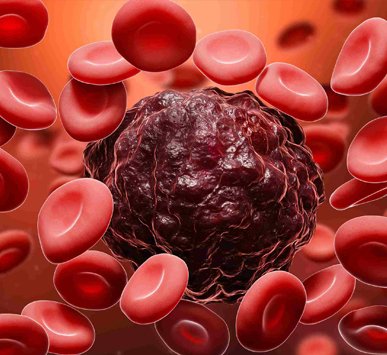
Visiting Hours
Visiting Hours
| Mon -Sat : | 9:00 am - 9:00 pm |

| Mon -Sat : | 9:00 am - 9:00 pm |
Blood cancers, collectively known as hematologic malignancies, represent a diverse group of diseases originating in the blood-forming tissues, primarily the bone marrow and the lymphatic system. This category encompasses three main types: leukemia, lymphoma, and myeloma, each with distinct characteristics and impact on the body.
Leukemia is a cancer that originates in the bone marrow, leading to the overproduction of abnormal white blood cells. These cells can crowd out healthy blood cells, impairing the body’s ability to fight infections and causing anemia. Leukemia is classified into different subtypes based on the type of white blood cell affected.
• ALL is a rapidly progressing leukemia that primarily affects lymphoid cells, which are a type of white blood cell.
• It is more common in children, but it can occur in adults as well.
• CLL progresses more slowly than ALL and primarily affects mature lymphocytes (B cells) in the blood and bone marrow.
• It is more common in adults, especially in older individuals.
• AML is a rapidly progressing leukemia that affects myeloid cells, including red blood cells, platelets, and various white blood cells.
• It can occur in both children and adults.
• CML progresses more slowly than AML and primarily affects myeloid cells, particularly granulocytes.
Lymphoma, on the other hand, affects the lymphatic system, including the lymph nodes and lymphocytes (white blood cells). Hodgkin lymphoma and non-Hodgkin lymphoma are the two main types.
Lymphomas often present as swollen lymph nodes, fatigue, and other symptoms related to compromised immune function.
Myeloma is a cancer of plasma cells, a type of white blood cell responsible for producing antibodies. In myeloma, malignant plasma cells accumulate in the bone marrow, leading to weakened bones, anemia, and kidney problems.
Early detection and accurate diagnosis of blood cancers are crucial for effective treatment.
Diagnostic methods include blood tests, bone marrow biopsy, and imaging studies. Treatment options vary depending on the type and stage of the cancer and may involve chemotherapy, radiation therapy, immunotherapy, and stem cell transplantation

Dr. Chandrasekhar - Expert Hematologist in Visakhapatnam, India.
| Mon -Sat : | 9:00 am - 9:00 pm |
Copyright 2023 andhrahematology All Rights Reserved by Digital Synergy